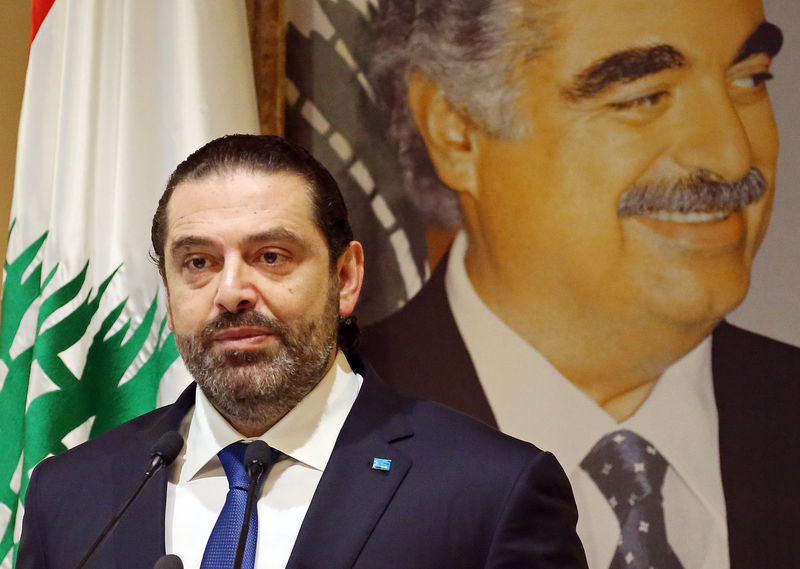 © Reuters. Lebanese Prime Minister-designate Saad al-Hariri speaks during a news conference in Beirut
© Reuters. Lebanese Prime Minister-designate Saad al-Hariri speaks during a news conference in BeirutBEIRUT (Reuters) – Highly-indebted Lebanon has exceeded its budget for 2018 and the government and central bank are taking steps to ensure the state can continue to fund itself as politicians struggle to form a government, the finance minister said on Wednesday.
More than six months since parliamentary elections, Prime Minister-designate Saad al-Hariri has hit a wall in his effort to form a national unity government as political factions jostle for positions in a new cabinet.
Politicians have warned of the risk of economic crisis unless a government is formed soon.
“We are passing through a slightly delicate stage which requires a higher level of coordination between political decision-making, the ministry of finance and the central bank,” Finance Minister Ali Hassan Khalil said.
“We are trying to follow it as soon as possible so as not to affect the regularity of securing the funding needed by the Lebanese treasury,” he said after meeting President Michel Aoun.
Lebanon has the world’s third highest debt-to-GDP ratio and a new government must be in place before Lebanon embarks on major fiscal reforms. The International Monetary Fund said in June these reforms are urgently needed to put the debt on a sustainable footing.
The World Bank estimates Lebanon’s national debt will stand at 155 percent of gross domestic product by the end of 2018.
Khalil said the government had spent more than it budgeted for this year as additional funding commitments had been put on the state – including for health, electricity, garbage and increased public sector wages.
But he said Lebanon would continue to meet its obligations.
“Lebanon … is committed to paying all its debts and debt servicing. This is something we have become accustomed to in the past and will continue to do so in the coming period,” he said.
Khalil said Lebanon was facing a “very big challenge” as a result of internal and external factors and urged the swift formation of a new government.
“The issue is no longer a general request, nor a matter of political luxury, but a fundamental structural need so that we can carry on in the coming period,” Khalil said.
The number one task facing a new Lebanese government is to reduce the twin budget and current account deficits and tackle the rising national debt.
Fusion Media or anyone involved with Fusion Media will not accept any liability for loss or damage as a result of reliance on the information including data, quotes, charts and buy/sell signals contained within this website. Please be fully informed regarding the risks and costs associated with trading the financial markets, it is one of the riskiest investment forms possible.
Source: Investing.com




























